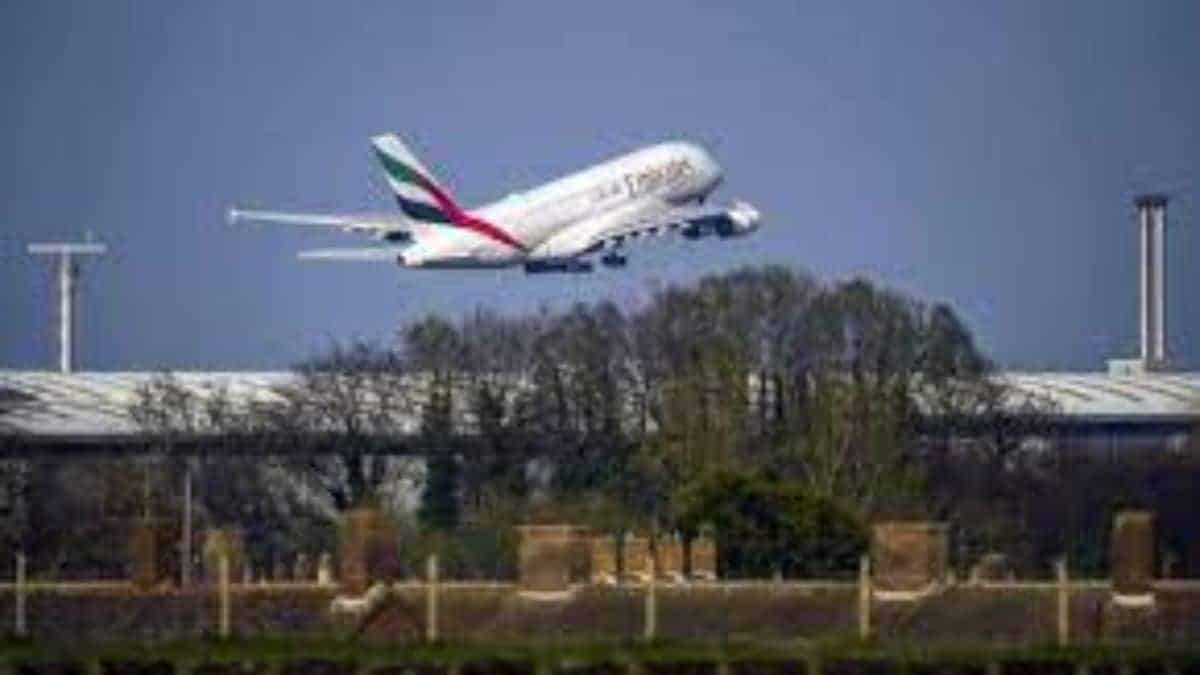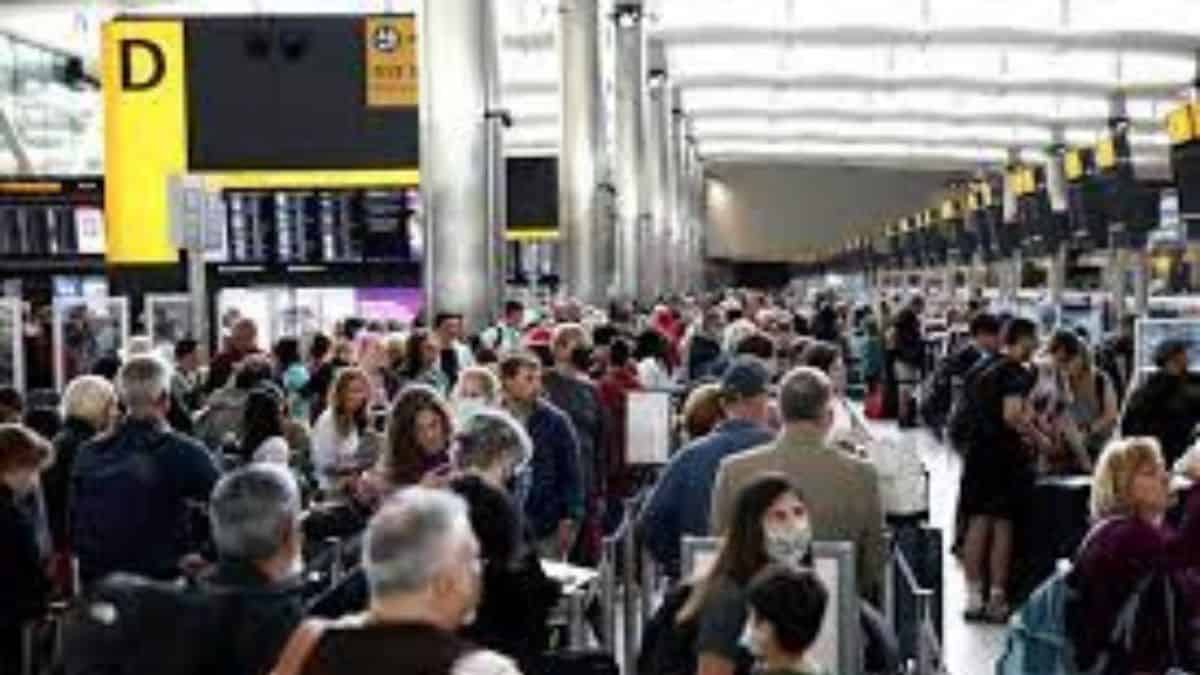Heathrow shifts from the UK’s travel nightmare to Europe’s Gateway

With multitudes of routine commuters and an optimistic growth strategy that included a brand-new runway, London’s Heathrow was unquestionably the hub airport for Europe less than a decade ago. The UK’s largest free-standing building, Terminal 5, which accommodated a number of opulent stores and restaurants, including one started by celebrity chef Gordon Ramsay, was still a novelty. The airport stood for aspiration, expansion, and an outward-looking Britain.

What a transformation. Heathrow is currently engaged in yet another battle with airlines after demanding they stop ticket sales during the lucrative school holiday period, a decision that might cost them $500 million in lost revenue. Long queues of furious passengers have been a typical sight at the airport, which has been straining to handle a post-pandemic surge in tourists. The cap on passengers was first opposed by one airline, Emirates, who called it “airmageddon,” before giving in.
The airport has been ordered to present a “credible and robust” recovery plan as a result of the UK government’s forced participation.
Critics question whether Heathrow needs extra room since it can’t even handle its existing capacity, regardless of environmental issues, and say that any possibility of a third runway is still years away. Heathrow’s struggles have come to represent a country afflicted by economic stagnation, political unrest, and an increasingly uncertain position in the globe, with Britain’s persistent labor shortage at the center of the travel chaos.
But Heathrow is not the only airport. The summer has been extremely difficult for international aviation travel. Several airports have capacity restrictions, including Frankfurt, Schiphol in Amsterdam, and Gatwick in London. Despite this, the UK has been more negatively impacted than its competitors on the Continent because of the incredibly low number of job seekers and the constrained availability of European labor in the wake of Brexit.
The Emirates controversy increased the likelihood of a backlash from rival airlines reluctant to restrict passenger movements after two years of limited international travel. The airline and the airport declared a change of heart late on Friday.
Emirates said it’s “ready and willing to work with the airport to remediate the situation over the next two weeks, to keep demand and capacity in balance and provide passengers with a smooth and reliable journey through Heathrow this summer,” according to a joint statement. “Emirates has capped further sales on its flights out of Heathrow until mid-August to assist Heathrow in its resource ramp-up, and is working to adjust capacity.”
The airport attempted to raise rates by as much as 95% in comparison to levels before the Covid epidemic, which further strained its relationship with carriers. Willie Walsh, the former CEO of British Airways, claimed the airport’s executives had “zero commercial nous” as a result of the strategy. A win for the airlines and a setback for Heathrow came in June when the UK’s Civil Aviation Authority capped fees to an average maximum price of £26.31 ($31.17) per person in 2026, down from £30.19 today.
The impact of Covid, which according to Walsh-run industry association IATA resulted in losses of $180 billion for airlines, has increased tensions.
“The aviation industry, including the airports, are caught between the proverbial rock and a hard place as they had no choice but to slash their workforces at the height of the pandemic, when no revenue was coming in,” said Rob Morris, the global head of consultancy at Ascend by Cirium. “That’s also meant that in rehiring, they’ve jeopardized their return to profitability and growth.”
Airport firms and airlines found it simple to fire employees at the beginning of the pandemic due to the UK’s relatively liberal labor laws. Then, when demand increased again, they had trouble finding replacement staff in a timely manner. Instead of going back to their prior occupations at airports or on aircraft, some people have discovered more desirable employment in other sectors of the economy.
“Strict security clearance requirements in the sector, and a reduced post-Brexit pool of candidates able to meet clearance criteria, are slowing down hiring processes at UK airports and airlines,” wrote Fitch Ratings analysts this week. “Low unemployment levels in the country also mean that airports and airlines need to increase pay and provide further incentives to hire staff, increasing costs and putting pressure on margins.”
Despite the unfortunate circumstances, airlines claim Heathrow was at fault for failing to predict a sharp increase in demand for international travel once Covid restrictions were lifted. John Holland-Kaye, the chief executive officer of Heathrow, downplayed an increase in bookings in April by claiming that many of them were the result of “customers cashing in coupons or taking postponed journeys.” He predicted last month that it might take another 18 months for the industry to return to capacity, earning the nickname “lord doom” from Virgin Airways CEO Shai Weiss.
Peak season this year doesn’t appear to be generating the kind of earnings that would have been anticipated. There is no assurance that demand will remain high after a winter of record-high energy prices and skyrocketing food expenses, despite Heathrow’s claims that it is ramping up employment and will soon have the same number of personnel working in security as it did prior to the pandemic.
“For Heathrow and the rest of the aviation industry, I think it’s key to focus on getting sorted for summer 2023, although the gloomy economic outlook makes it much harder to forecast demand,” said Cirium’s Morris.
A portion of the responsibility has been shifted, according to Holland-Kaye, who claims that there aren’t enough employees on the airlines, “in particular ground handlers, who are contracted by airlines to provide check-in staff, load and unload bags, and turnaround aircraft.”
At a period when air travel was supposed to represent the acceptance of pre-Covid freedoms, the feud adds to the feeling of dissatisfaction around it. Instead, images of sleeping commuters crammed into airport terminal floors are starting to take over the summer vacation season.


